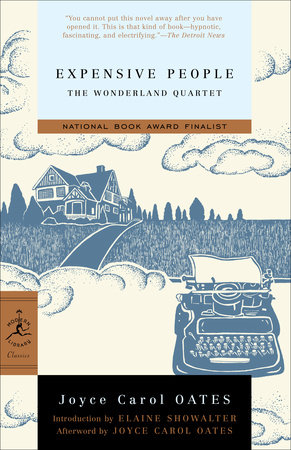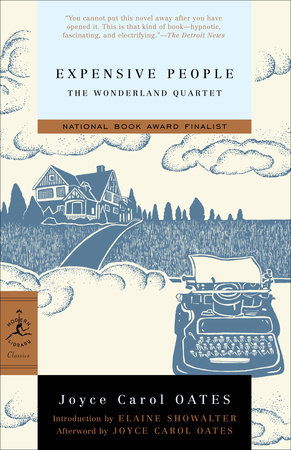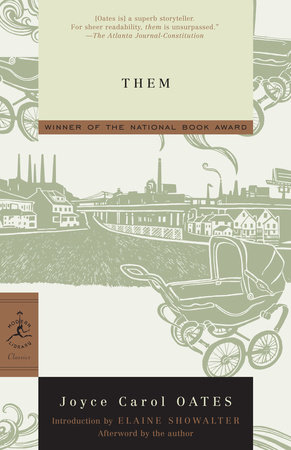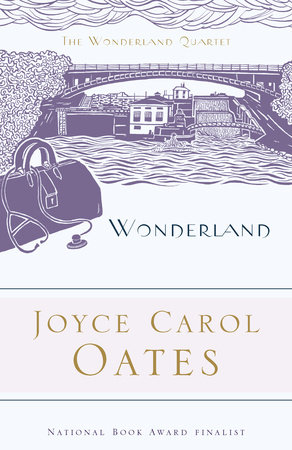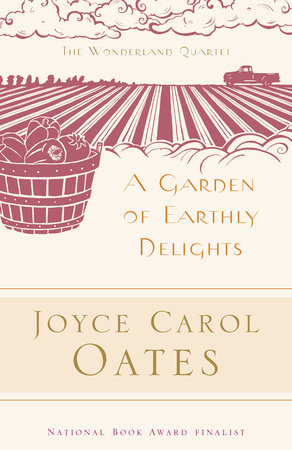Excerpt
Expensive People
Part I
1
I was a child murderer.
I don’t mean child-murderer, though that’s an idea. I mean child murderer, that is, a murderer who happens to be a child, or a child who happens to be a murderer. You can take your choice. When Aristotle notes that man is a rational animal one strains forward, cupping his ear, to hear which of those words is emphasized—rational animal, rational animal? Which am I? Child murderer, child murderer? It took me years to start writing this memoir, but now that I’m started, now that those ugly words are typed out, I could keep on typing forever. A kind of quiet, blubbering hysteria has set in. You would be surprised, normal as you are, to learn how many years, how many months, and how many awful minutes it has taken me just to type that first line, which you read in less than a second: I was a child murderer.
You think it’s easy?
Let me explain the second line. Child-murderer is an “idea.” I am writing this memoir in a rented room, ignoble enough and smelling of garbage, and outside in the street children are playing. Normal, like you and everyone who chances upon these sweaty words of mine, the children are making noise. Normal people always make noise. So it crosses my desperate, corrupt, cobwebbed mind, my flabby, cringing mind, that those noises could be silenced in the way I once silenced someone else. Already you are struggling and tugging with your distaste, eh? You’re tempted to glance at the back of this book to see if the last chapter is a prison scene and a priest visits me and I either stoically refuse him or embrace his knees manfully. Yes, you are thinking of doing that. So I might as well tell you that my memoir will not end in any such convenient way; it isn’t well-rounded or hemmed in by fate in the shape of novelistic architecture. It certainly isn’t well-planned. It has no conclusion but just dribbles off, in much the same way it begins. This is life. My memoir is not a confession and it is not fiction to make money; it is simply . . . I am not sure what it is. Until I write it all out I won’t even know what I think about it.
Look at my hands tremble! I am not well. I weigh two hundred and fifty pounds and I am not well, and if I told you how old I am you would turn away with a look of revulsion. How old am I? Did I stop growing on that day when “it” happened, note the shrewd passivity of that phrase, as if I hadn’t made “it” happen myself, or did I maybe freeze into what I was, and outside of that shell layers and layers of fat began to form? Writing this is such hard work that I have to stop and wipe myself with a large handkerchief. I sweat all over. And those children outside my window! I think they are unkillable anyway. Life keeps on, getting noisier and noisier as I get quieter and quieter, and all these normal, noisy, healthy people around me keep pressing in, mouths full of laughing teeth and biceps charmingly bulging. At the second in which the slick lining of my stomach finally bursts, some creature next door will turn her radio from Bill Sharpe’s “Weather Round-Up” to Guy Prince’s “Top-Ten Jamboree.”
This memoir is a hatchet to slash through my own heavy flesh and through the flesh of anyone else who happens to get in the way.
One thing I want to do, my readers, is to minimize the tension between writer and reader. Yes, there is tension. You think I am trying to put something over on you, but that isn’t true. It isn’t true. I am honest and dogged and eventually the truth will be told; it will just take time because I want to make sure everything gets in. I realize my sentences are slack and flabby and composed of too many small words—I’ll see if I can’t fix that. And you are impatient because I can’t seem to get started telling this story in any normal way (I don’t mean to be ironic so much, irony is an unpleasant character trait), and you would like to know, whimsically enough, whether I am in a mental institution now or crazy in some less official setting, whether I am repentant (a tongueless monk, maybe), whether much gore will be splattered throughout these pages, many violent encounters between male and female, and whether after these extravaganzas I am justly punished. Just punishment after illicit extravaganzas is usually served up for the benefit of the reader, who feels better. But, you see, this is not fiction. This is life. My problem is that I don’t know what I am doing. I lived all this mess but I don’t know what it is. I don’t even know what I mean by “it.” I have a story to tell, yes, and no one else could tell it but me, but if I tell it now and not next year it will come out one way, and if I could have forced my fat, heaving body to begin this a year ago it would have been a different story then. And it’s possible that I’m lying without knowing it. Or telling the truth in some weird, symbolic way without knowing it, so only a few psychoanalytic literary critics (there are no more than three thousand) will have access to the truth, what “it” is.
So there is tension, all right, because I couldn’t begin the story by stating: One morning in January a yellow Cadillac pulled up to a curb. And I couldn’t begin the story by stating: He was an only child. (Both these statements are quite sensible, by the way, though I could never talk about myself in the third person.)
And I couldn’t begin the story by stating: Elwood Everett met and wed Natashya Romanov when he was thirty-two and she was nineteen. (Those are my parents! It took me some time to type out their names.)
And I couldn’t begin the story with this pathetic flourish: The closet door opened suddenly and there he stood, naked. He stared in at me and I stared out at him. (And that also will come to pass, though I hadn’t intended to mention it so soon.)
All these devices are fine and I offer them to any amateur writer who wants them, but for me they don’t work because . . . I’m not sure why. It must be because the story I have to tell is my life, synonymous with my life, and no life begins anywhere. If you have to begin your life with a sentence, better make it a brave summing up and not anything coy: I was a child murderer.
My readers, don’t fret, don’t nibble at your nails: indeed I was punished. Indeed I am being punished. My misery is proof of God’s existence—yes, I’ll offer that to you as a special bonus! It will do your souls good to read of my suffering. You’ll want to know when my crime took place, and where. And what do I look like, this fat degenerate, dripping sweat over his manuscript, and how the hell old am I anyway, and whom did I kill, and why, and what sense does it make?


